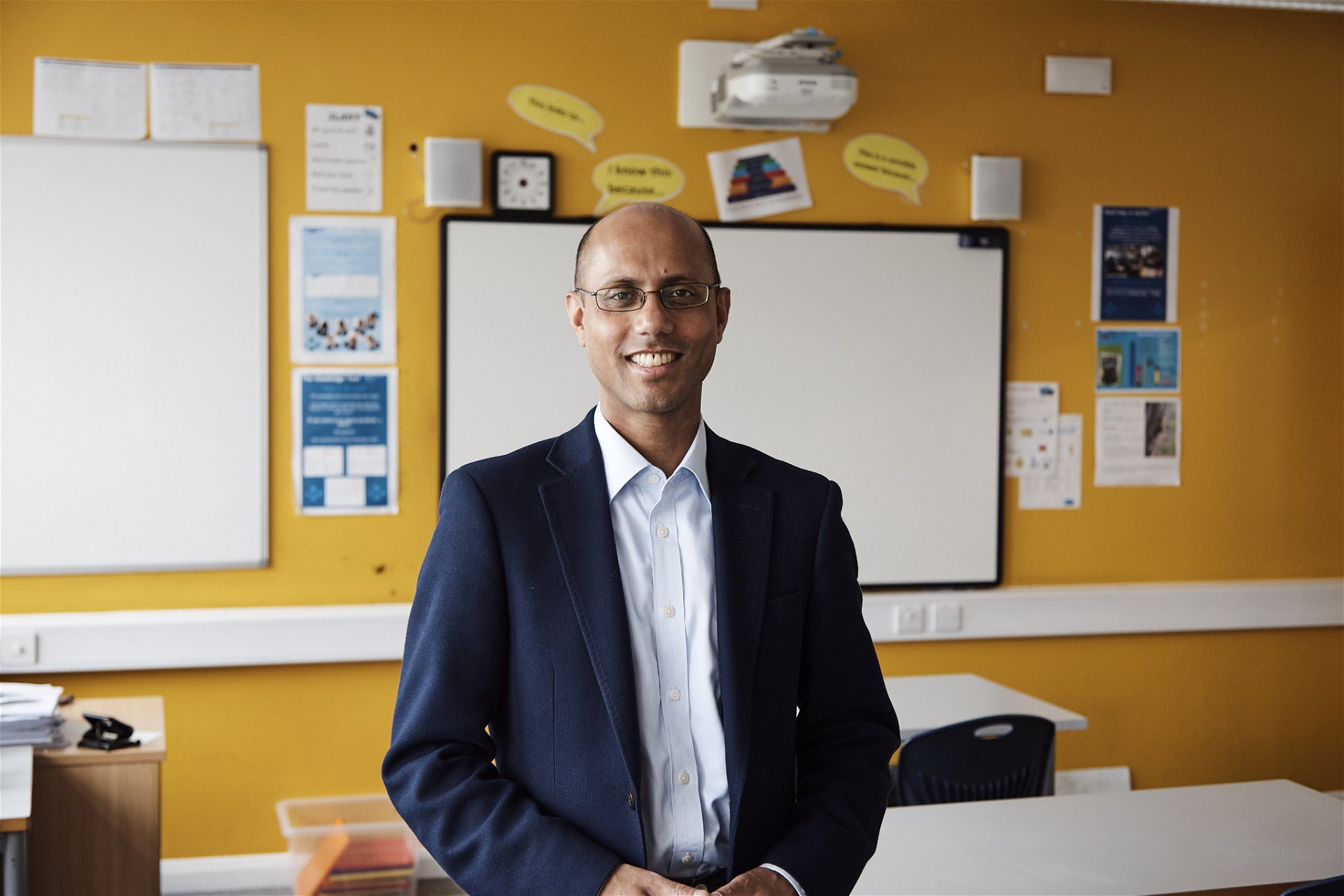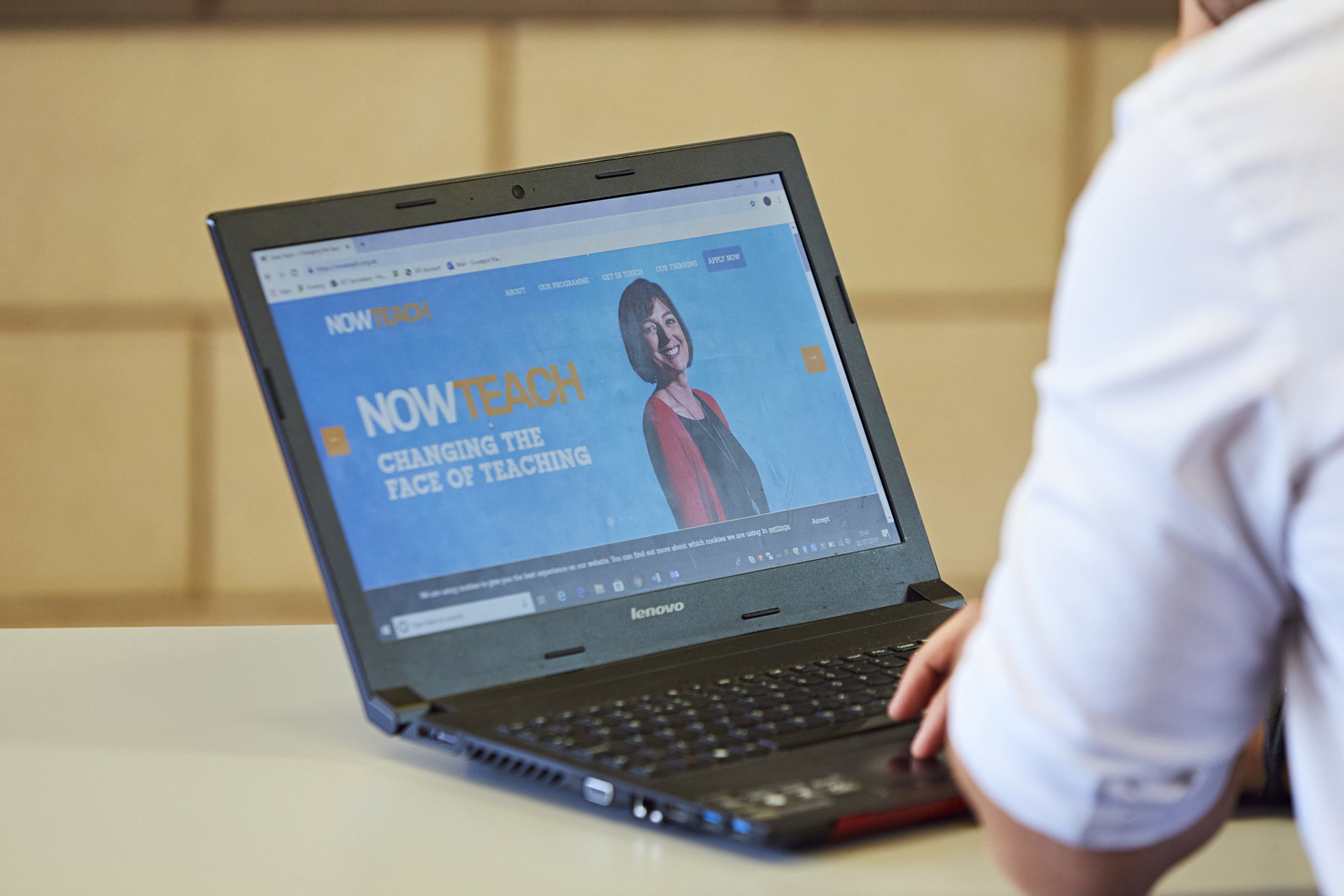
Former law firm partner, Khasruz Zaman, joined Now Teach in 2018 and now teaches Maths at Harris Boys’ Academy in South East London. For two decades he worked in the city as a Corporate Lawyer and devoted a significant amount of time to mentoring and supporting young people from diverse backgrounds, particularly those under-represented in the legal profession.
Khasruz was inspired by Now Teach to take this further and decided to change career to become a teacher – aiming to continue supporting young people to flourish, realise their potential, and make the most of the opportunities that they have.
“I see my role as building bridges between the world of work and education. My purpose now is to help young people from all backgrounds to have a more equal chance to succeed in life.”
Motivations to teach
Khasruz decided to switch to teaching while at the peak of his career, instead of waiting until closer to retirement. He believed he could make a difference, especially in schools where a large proportion of students are from disadvantaged backgrounds.
Born in Bangladesh and having moved to the UK at the age of eight, he needed to learn a new language and adapt to a completely different environment. Khasruz attended a “failing" comprehensive school in Smethwick (Birmingham), but still saw this as a golden opportunity to achieve, especially when he compared it to the prospects of his contemporaries back in Bangladesh.
“I see myself as having been very privileged to have had such opportunities, which provided me with strong foundations for adult life. And I expect to be able to draw on my personal life experiences to build a strong connection with students.”
Creating opportunities for students
When Covid restrictions were lifted, Khasruz organised assemblies at his school with guest speakers from different industries, and for groups of students to visit workplaces.
Assemblies were available to entire year groups with speakers from top law firms and banks. Khasruz’s headteacher and colleagues were hugely supportive of these initiatives and, for example, allowed students to miss timetabled lessons to accommodate the speakers’ schedule, ensuring the children could benefit from these opportunities. He tells us that “there’s always a noticeable buzz in the corridors after there’s been an assembly with a guest speaker, or a trip to a workplace.”
Barclays and Norton Rose hosted interactive sessions where the students could negotiate deals and value assets, alongside talks from their employees. Khasruz explained that visiting workplaces in the City and interacting with people from different backgrounds challenged the narrative of ‘but we don’t belong here’, and helped students realise that they are welcome and can aspire to work in places like those.
The firms and industry professionals involved in this work spoke highly of the experience, especially enthused by the student's curiosity and probing questions: “It was fantastic to have your students with us. So talented and clued up on the business world! I hope that after this and your other visits across the city, that they feel encouraged to consider careers like Finance and Law - they are capable of being real highfliers.” - James Trevelyan, Co-Head, Corporate Development at Barclays
Head of Corporate Development at Barclays, John Sandhu, commented on one post encouraging other employers to get involved: “It was a pleasure to welcome your Y10 students, a successful visit, the first of many, I hope. I couldn’t agree more about the need to find better ways for talented and driven young people to have an equal chance to succeed in life, regardless of background.”
Khasruz urges employers to help break down barriers by interacting with school students early on – to inspire them to want to work with them: “If employers are serious about diversity, they need to go beyond the immediate people they’re trying to recruit. They need to make a bigger contribution to nurturing and developing the wider talent pool. If they engage with secondary school children, it can set those students on a different trajectory and have a much greater longer-term impact.”
Long term, Khasruz aims to support the talent pool – young people – to flourish all the way to the top: “We should be supporting them to be better equipped to meet the needs of future employers and the needs of society.”

